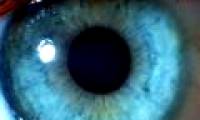
The team of the Japan Center for Reproductive Research successfully implanted retinal cells made up of iPS cells in monkeys.

This is the first time that successful researchers have replaced damaged retinal cells, giving hope that someday in the near future can be applied to humans.

The detection of melanopsin pigment in retinal cells plays a role in controlling the circadian rhythm as well as sending information to the visual cortex.

The study was co-chaired by neuroscientists Keith Martin and Barbara Lorber of Cambridge University.

Blind blind patients in the UK will participate in the first trial of eye treatment with human embryonic stem cell therapy in Europe.
 The team of the Japan Center for Reproductive Research successfully implanted retinal cells made up of iPS cells in monkeys.
The team of the Japan Center for Reproductive Research successfully implanted retinal cells made up of iPS cells in monkeys. This is the first time that successful researchers have replaced damaged retinal cells, giving hope that someday in the near future can be applied to humans.
This is the first time that successful researchers have replaced damaged retinal cells, giving hope that someday in the near future can be applied to humans. The detection of melanopsin pigment in retinal cells plays a role in controlling the circadian rhythm as well as sending information to the visual cortex.
The detection of melanopsin pigment in retinal cells plays a role in controlling the circadian rhythm as well as sending information to the visual cortex. The study was co-chaired by neuroscientists Keith Martin and Barbara Lorber of Cambridge University.
The study was co-chaired by neuroscientists Keith Martin and Barbara Lorber of Cambridge University. Blind blind patients in the UK will participate in the first trial of eye treatment with human embryonic stem cell therapy in Europe.
Blind blind patients in the UK will participate in the first trial of eye treatment with human embryonic stem cell therapy in Europe.
 Do signals from extraterrestrial civilizations detected by Sky Eye really exist?
Do signals from extraterrestrial civilizations detected by Sky Eye really exist? 'City without air conditioning' in China: People don't know what heat is!
'City without air conditioning' in China: People don't know what heat is! The element of the sun god is giving scientists a headache
The element of the sun god is giving scientists a headache Unique Village: Roofs Become Roads for Residents!
Unique Village: Roofs Become Roads for Residents! Top 7 strange psychological effects of the brain that we all have without knowing
Top 7 strange psychological effects of the brain that we all have without knowing Which is the most terrifying bedroom elixir in Chinese history?
Which is the most terrifying bedroom elixir in Chinese history? Earth's core may start rotating in reverse
Earth's core may start rotating in reverse A day in Japan can be up to 30 hours long, does this country live in a different 'timeline'?
A day in Japan can be up to 30 hours long, does this country live in a different 'timeline'?